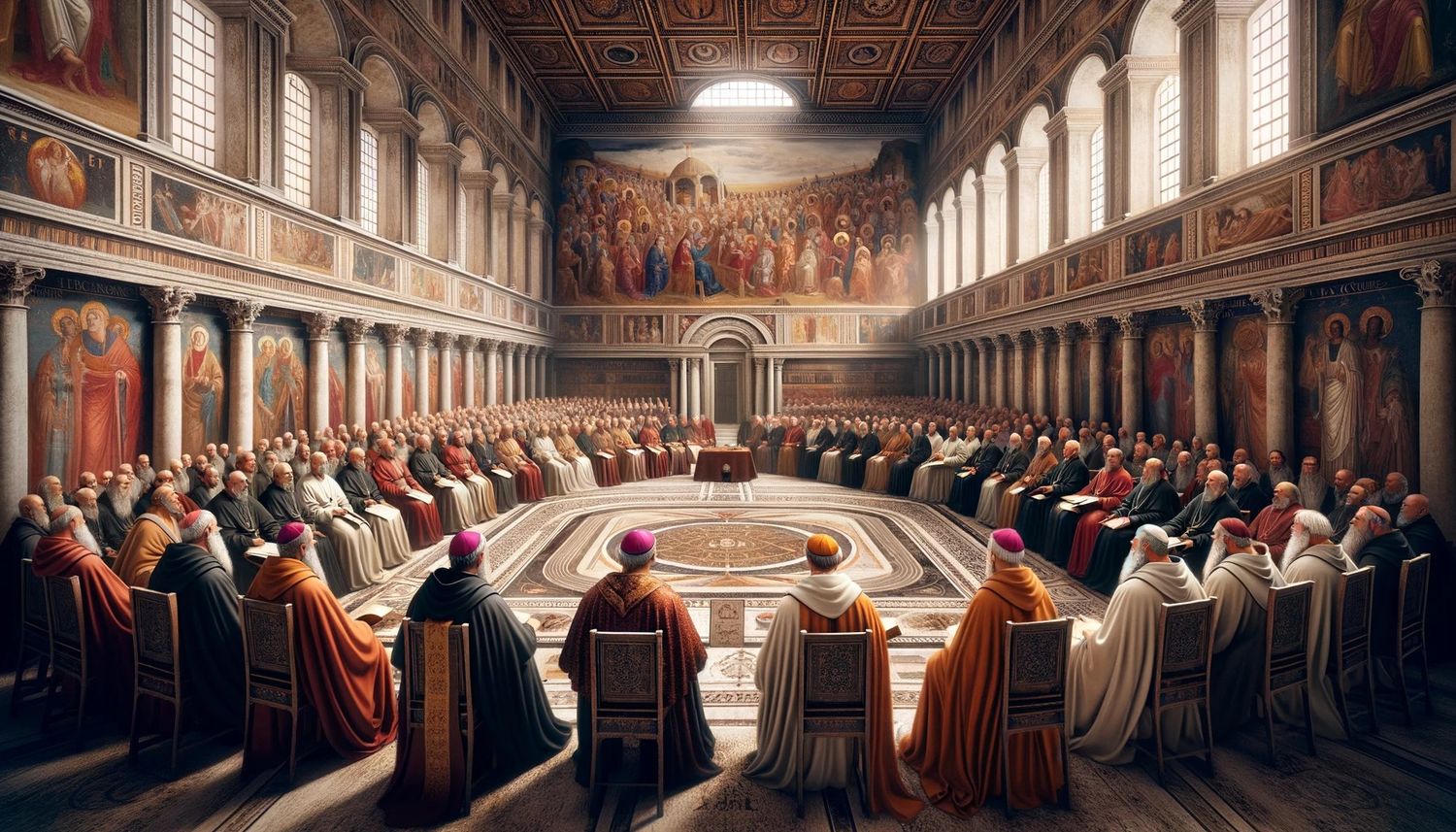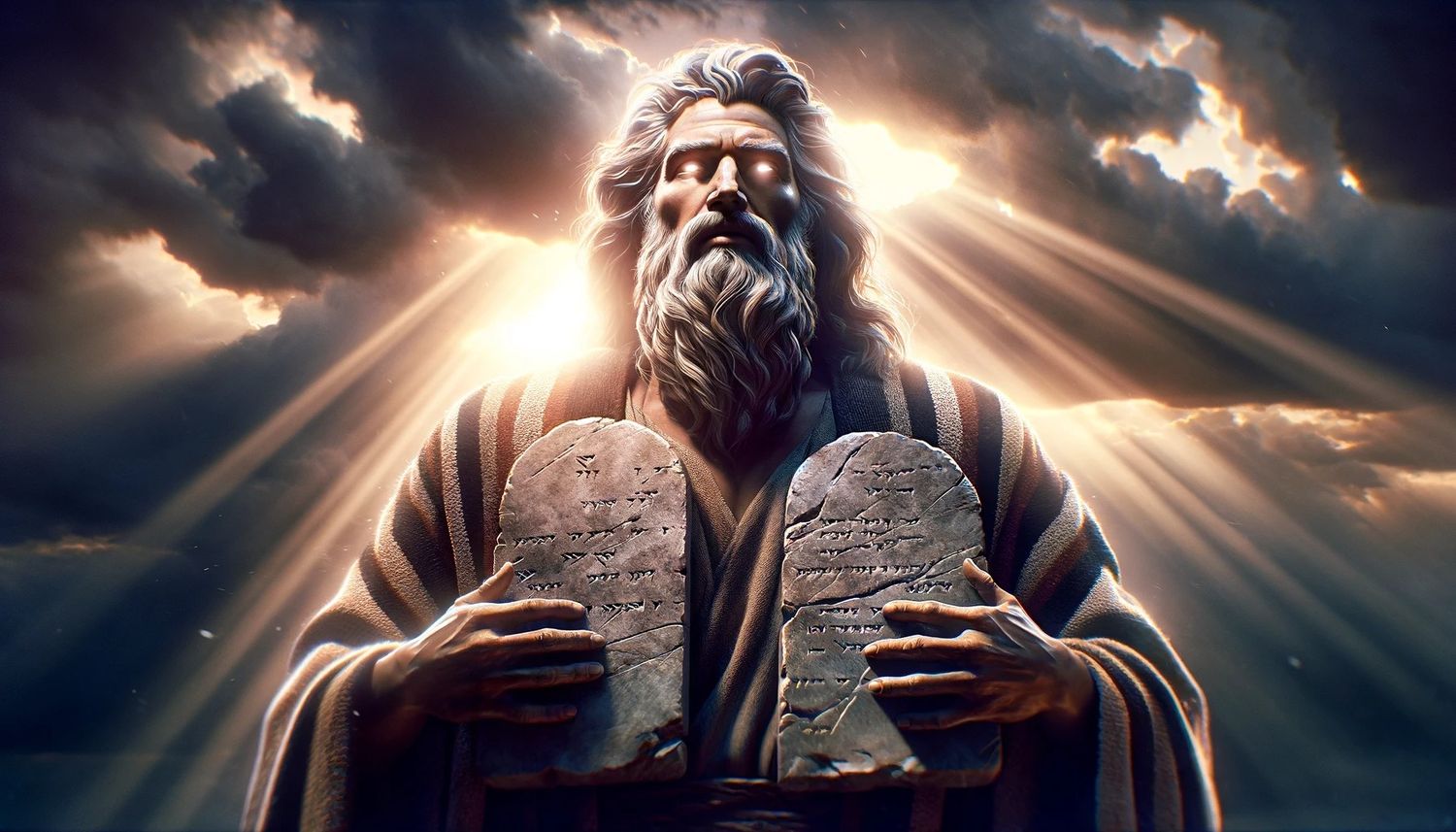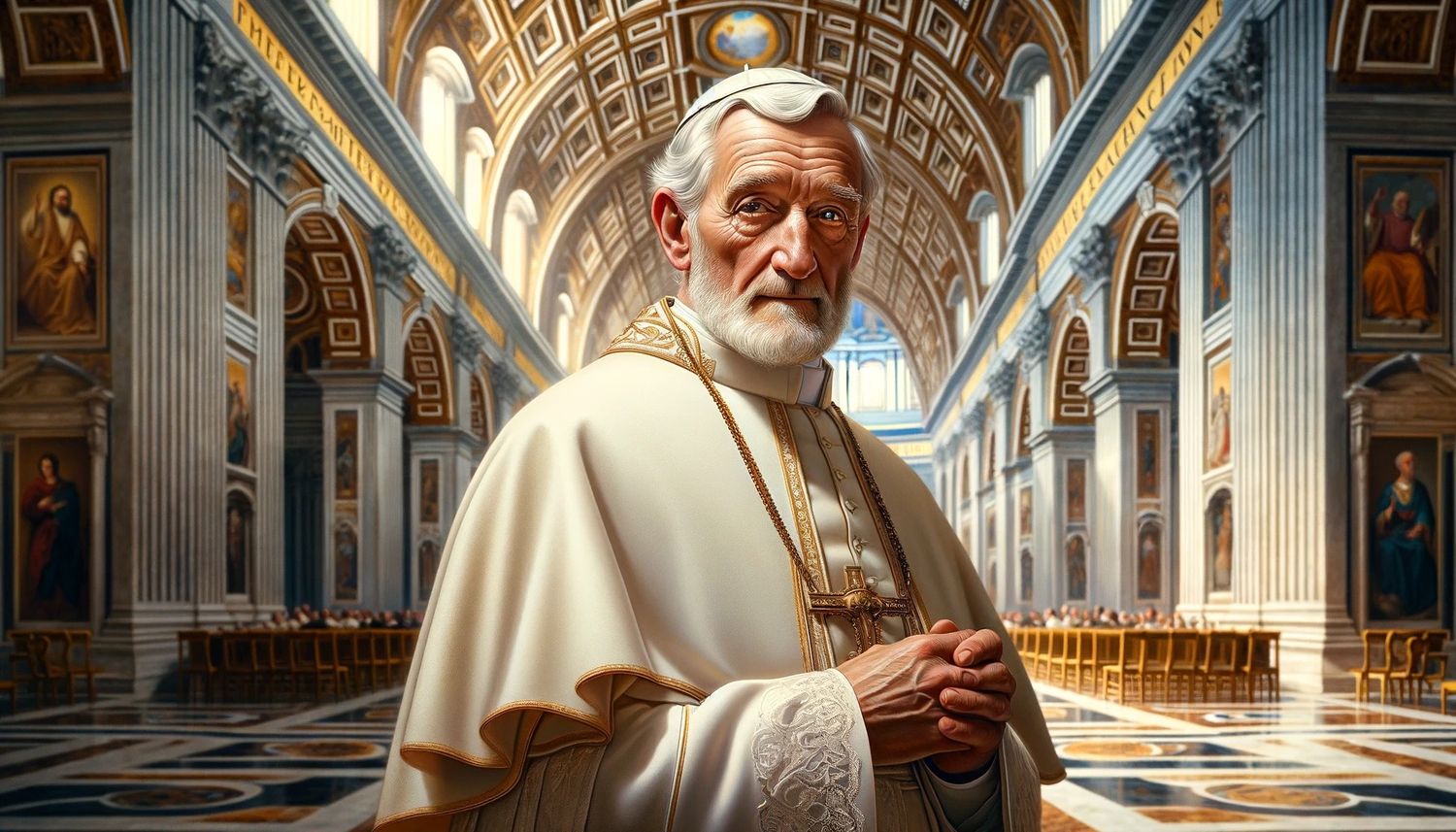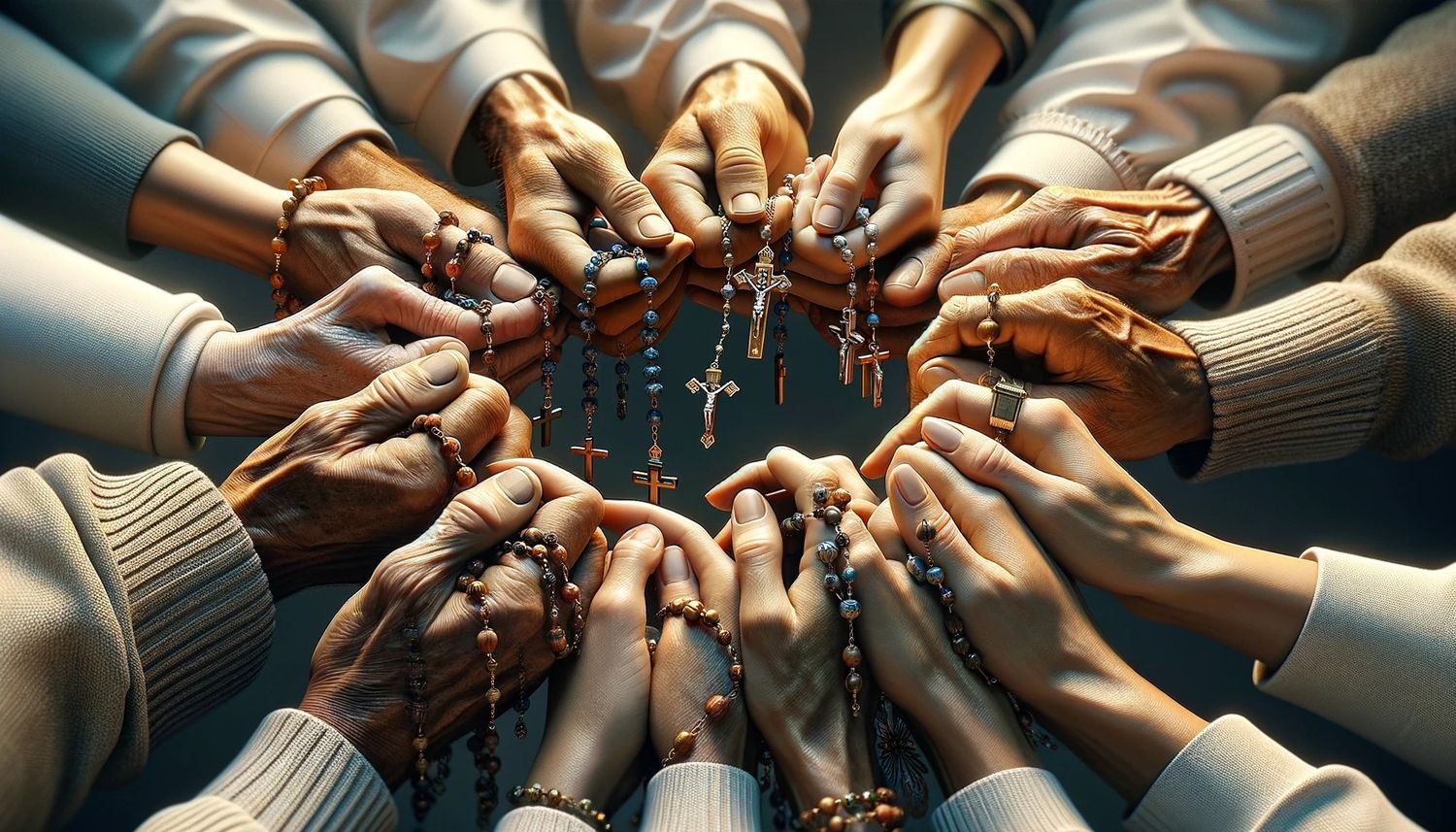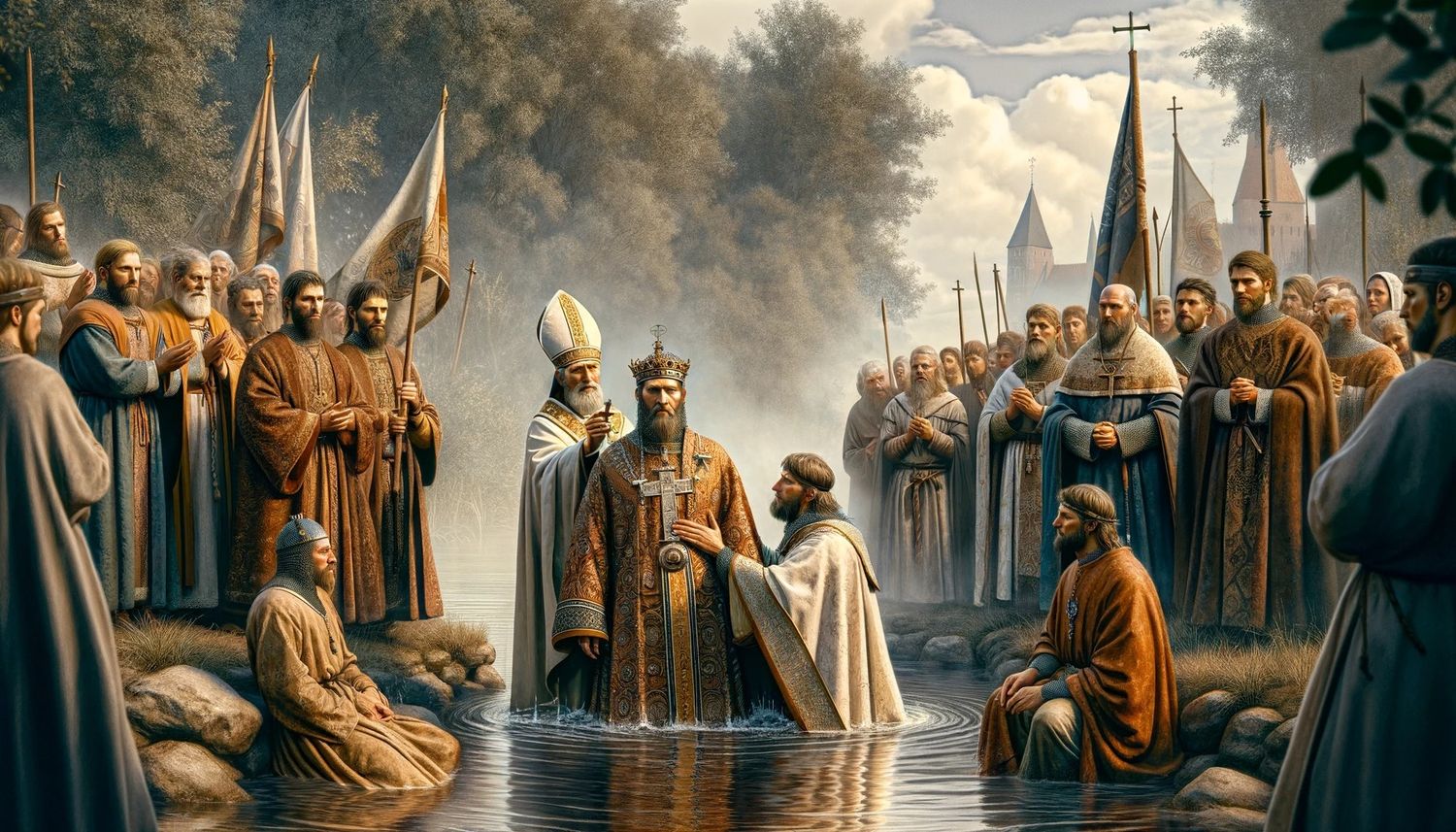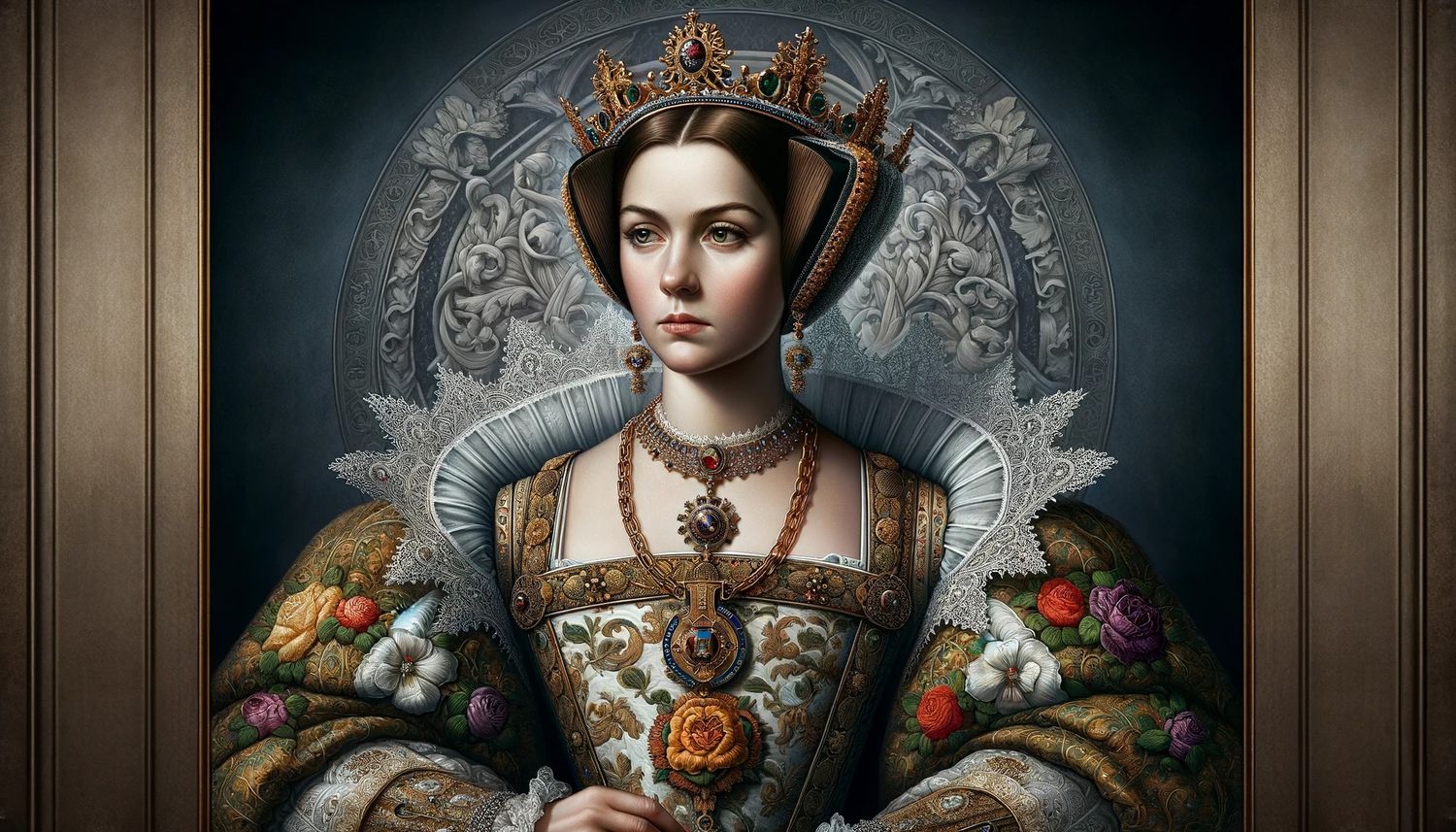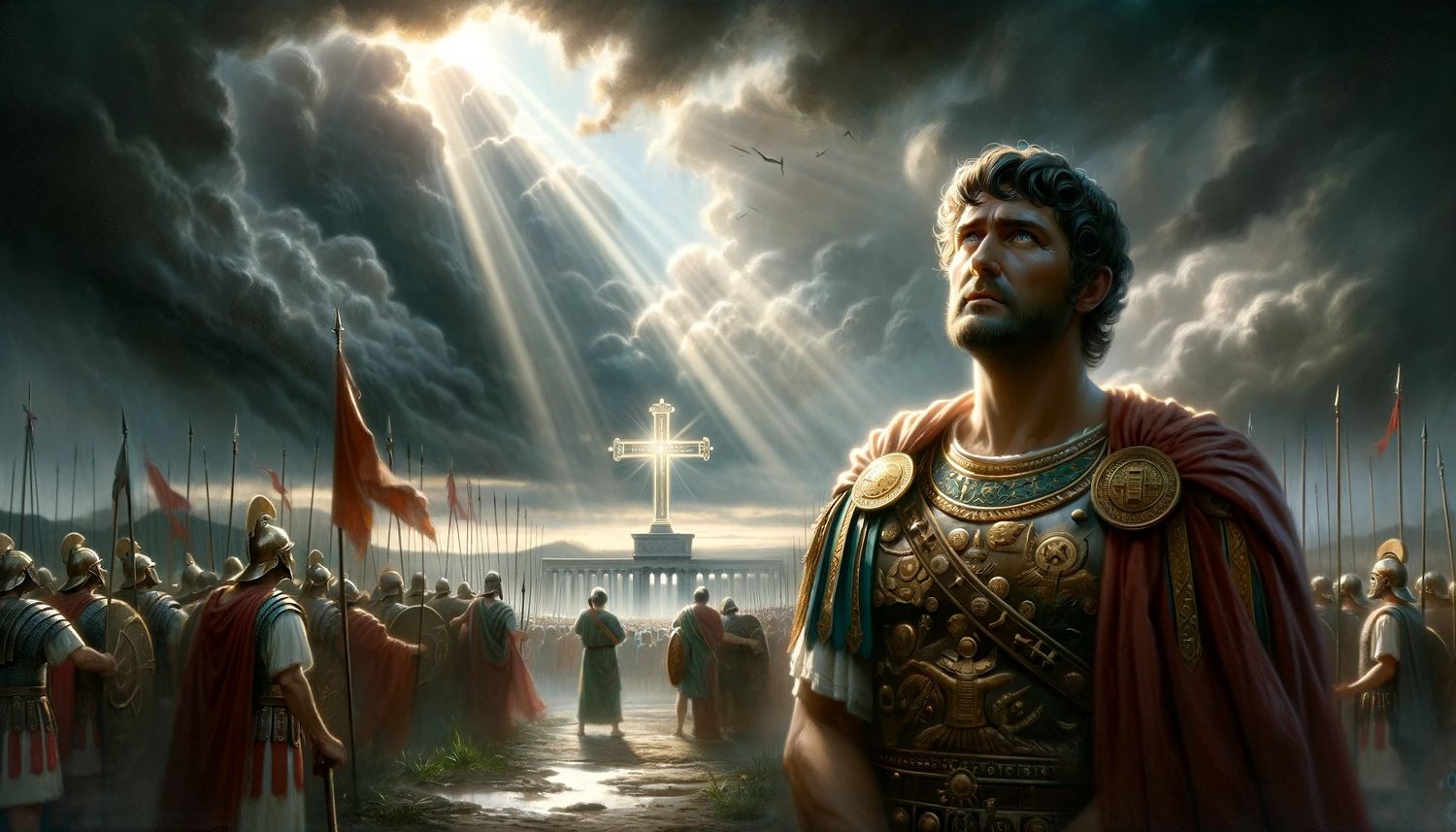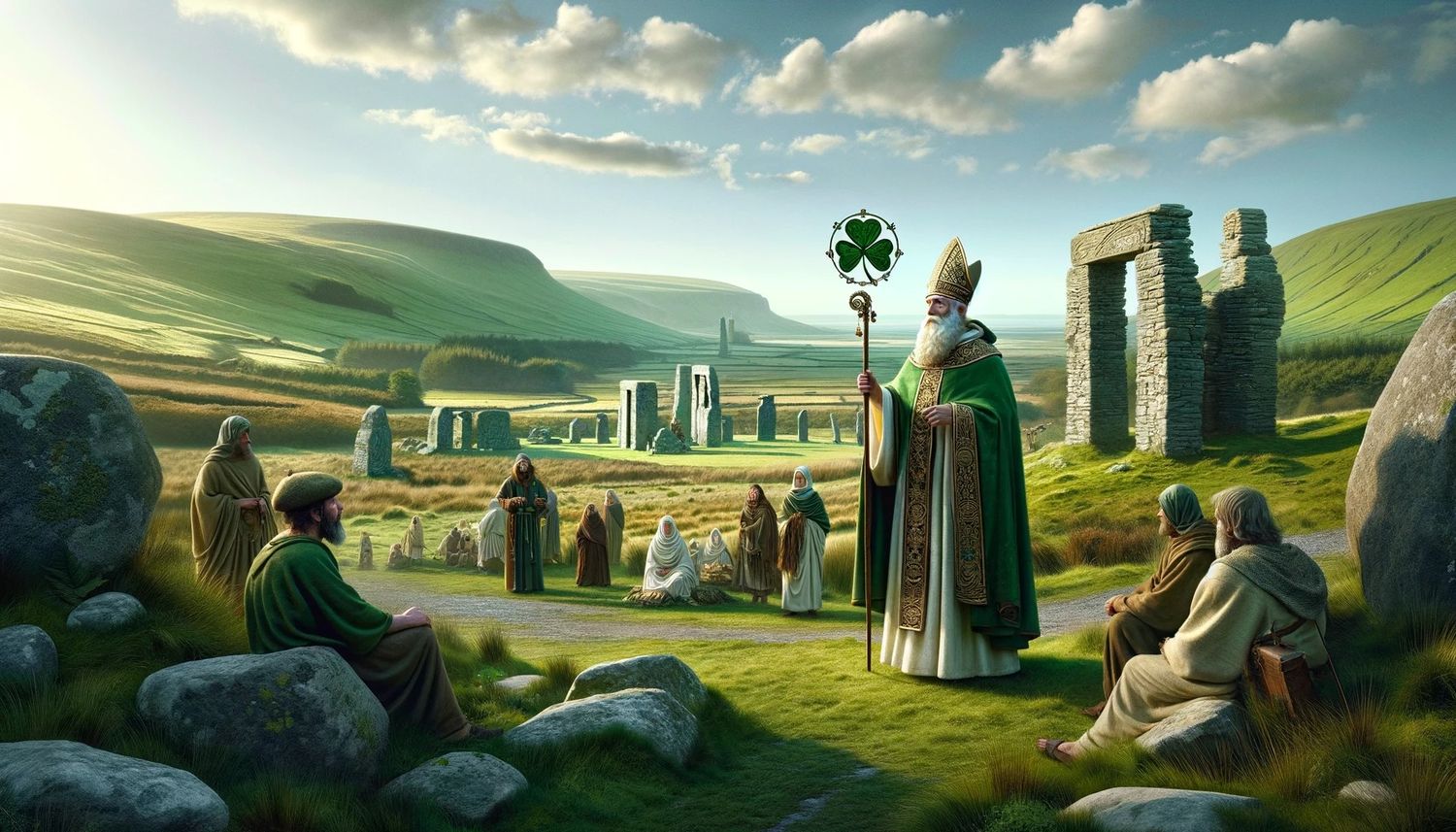Home>Theology and Spirituality>Who Was The Greatest Supporter Of Militant Catholicism In The Second Half Of The Sixteenth Century
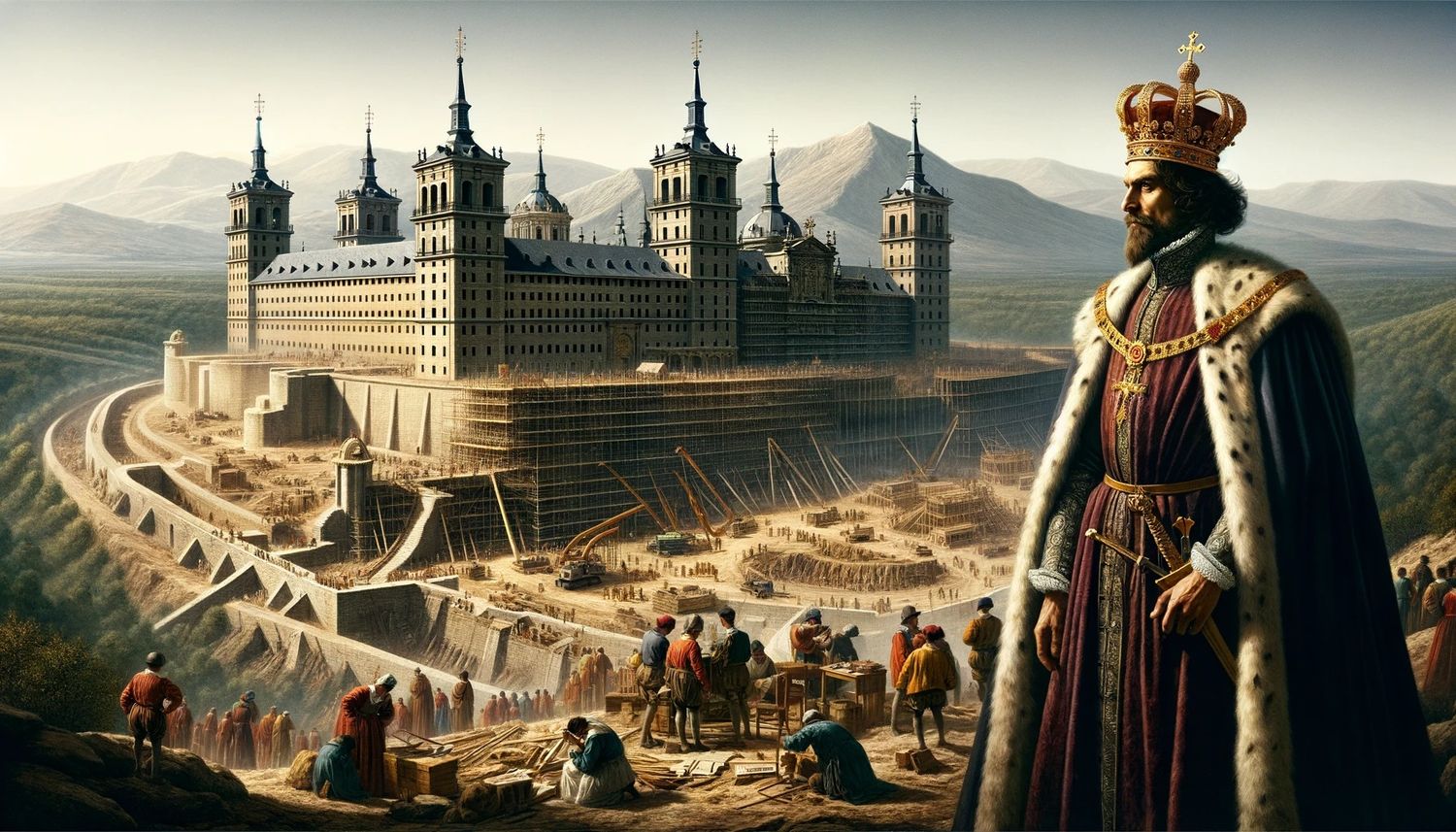

Theology and Spirituality
Who Was The Greatest Supporter Of Militant Catholicism In The Second Half Of The Sixteenth Century
Published: February 18, 2024
Peter Smith, Editorial Director at Christian.net, combines deep insights into faith, politics, and culture to lead content creation that resonates widely. Awarded for his contributions to religious discourse, he previously headed a major organization for religious communicators, enhancing dialogue on faith's societal impacts.
Discover the influential figure who championed militant Catholicism in the late 16th century. Explore their impact on theology and spirituality.
(Many of the links in this article redirect to a specific reviewed product. Your purchase of these products through affiliate links helps to generate commission for Christian.net, at no extra cost. Learn more)
Table of Contents
Introduction
In the tumultuous landscape of the sixteenth century, the fervent currents of religious reform and conflict surged across Europe, shaping the course of history and leaving an indelible mark on the collective consciousness. Amidst this backdrop of religious upheaval, the emergence of militant Catholicism stood as a formidable force, propelled by influential figures who ardently championed its cause. This pivotal era witnessed the ascendancy of individuals who fervently supported the militant Catholic movement, leaving an enduring legacy that reverberates through the annals of time.
The fervor of militant Catholicism was characterized by unwavering devotion to the preservation and propagation of traditional Catholic doctrine, often employing assertive and uncompromising measures to combat the rising tide of Protestantism. This fervent commitment to the Catholic faith was underpinned by a resolute determination to safeguard the integrity of the Church and uphold its authority in the face of formidable challenges.
As we delve into the annals of history, the profound impact of key proponents of militant Catholicism becomes strikingly evident. Among these influential figures, the unwavering support of Philip II of Spain, the resolute influence of Pope Pius V, and the transformative effects of the Council of Trent stand out as defining pillars of this fervent movement. Their unwavering dedication and strategic initiatives played a pivotal role in shaping the trajectory of militant Catholicism, leaving an indelible imprint on the religious and geopolitical landscape of the era.
The rise of militant Catholicism in the second half of the sixteenth century heralded a period of fervent ideological fervor and fervid determination, as stalwart proponents rallied to fortify the foundations of the Catholic faith. Through a comprehensive exploration of the pivotal figures and transformative events that defined this epoch, we gain profound insights into the enduring legacy of militant Catholicism and the profound impact of its most fervent supporters.
The Rise of Militant Catholicism
Amidst the seismic shifts of the sixteenth century, the rise of militant Catholicism emerged as a formidable response to the challenges posed by the Protestant Reformation. This fervent movement was characterized by an unwavering commitment to defending and fortifying the traditional tenets of the Catholic faith, often employing assertive measures to counter the burgeoning influence of Protestant ideologies.
The fervor of militant Catholicism was fueled by a resolute determination to uphold the authority of the Catholic Church and safeguard its doctrinal integrity in the face of mounting opposition. This steadfast allegiance to the traditional teachings of Catholicism galvanized fervent proponents who sought to stem the tide of religious reform that threatened to erode the foundations of the Church.
At the heart of this fervent movement lay a profound sense of religious zeal and unwavering devotion to the principles of Catholic orthodoxy. The proponents of militant Catholicism were driven by a fervid commitment to combat the perceived heresies propagated by the Protestant Reformation, viewing it as an existential threat to the unity and authority of the Church.
The rise of militant Catholicism was marked by a fervent resurgence of traditional Catholic practices and a concerted effort to reinforce the institutional structures of the Church. This fervid revival was underscored by a zealous determination to counter the spread of Protestant doctrines and preserve the primacy of Catholic authority in matters of faith and doctrine.
As the fervor of militant Catholicism gained momentum, it engendered a climate of religious fervency and ideological assertiveness, shaping the contours of religious discourse and precipitating profound geopolitical ramifications. The fervent proponents of militant Catholicism stood as stalwart defenders of the traditional Catholic faith, steadfastly resisting the encroachments of Protestantism and striving to uphold the primacy of Catholic doctrine in the face of formidable challenges.
The rise of militant Catholicism in the sixteenth century heralded a period of fervent ideological fervor and resolute determination, as stalwart proponents rallied to fortify the foundations of the Catholic faith. This fervent movement, propelled by unwavering devotion and resolute conviction, left an indelible imprint on the religious and geopolitical landscape of the era, shaping the course of history in profound and enduring ways.
The Role of Philip II of Spain
Philip II of Spain, a formidable proponent of militant Catholicism, wielded immense influence in shaping the trajectory of the fervent movement during the second half of the sixteenth century. As a devout and unwavering champion of the Catholic faith, Philip II played a pivotal role in fortifying the foundations of militant Catholicism and advancing its cause with resolute determination.
Philip II's unwavering commitment to militant Catholicism was deeply rooted in his staunch belief in the primacy of Catholic doctrine and the imperative of upholding the authority of the Church. His reign was characterized by a fervent dedication to combating the spread of Protestantism and preserving the traditional tenets of the Catholic faith, a commitment that reverberated across the geopolitical landscape of Europe.
At the helm of the Spanish Empire, Philip II wielded formidable political and military power, leveraging these resources to advance the cause of militant Catholicism. His unwavering support for the Spanish Inquisition, a potent instrument of religious orthodoxy, underscored his resolute determination to combat heresy and uphold the purity of the Catholic faith within his dominions.
Philip II's fervent advocacy for militant Catholicism extended beyond the borders of his realm, as he actively intervened in the religious and geopolitical affairs of other European territories. His unwavering support for Catholic monarchs and his resolute opposition to Protestant influences positioned him as a formidable bulwark of the Catholic faith, exerting a profound impact on the religious and political dynamics of the era.
The fervent zeal and resolute determination exhibited by Philip II in championing the cause of militant Catholicism left an enduring imprint on the religious and geopolitical landscape of the sixteenth century. His unwavering commitment to upholding the authority of the Catholic Church and combating the spread of Protestantism solidified his legacy as one of the greatest supporters of militant Catholicism in the second half of the sixteenth century.
Philip II's indelible influence as a fervent proponent of militant Catholicism reverberates through the annals of history, underscoring the profound impact of his unwavering dedication to the preservation and propagation of the traditional Catholic faith. His resolute advocacy for militant Catholicism stands as a testament to the enduring legacy of fervent devotion and unwavering commitment that defined this pivotal era in the history of the Catholic Church.
The Influence of Pope Pius V
Pope Pius V, a towering figure in the annals of militant Catholicism, exerted a profound and enduring influence on the religious and geopolitical landscape of the late sixteenth century. His pontificate, marked by unwavering devotion to the preservation and propagation of traditional Catholic doctrine, solidified his legacy as a fervent proponent of militant Catholicism.
Pope Pius V ascended to the papal throne at a pivotal juncture in the history of the Catholic Church, facing formidable challenges posed by the Protestant Reformation and the escalating tensions that permeated the religious milieu of the era. Undeterred by the daunting complexities of the ecclesiastical landscape, Pius V embarked on a resolute mission to fortify the foundations of the Catholic faith and combat the encroachments of Protestantism with unwavering determination.
At the heart of Pope Pius V's influence lay a fervent commitment to upholding the doctrinal integrity of the Catholic Church and safeguarding its authority amidst the tumultuous currents of religious reform. His resolute efforts to combat heresy and preserve the traditional tenets of Catholicism were underscored by a steadfast dedication to advancing the cause of militant Catholicism, positioning him as a formidable champion of the faith.
Pope Pius V's indomitable spirit and resolute initiatives reverberated across the ecclesiastical landscape, leaving an indelible mark on the trajectory of militant Catholicism. His unwavering support for the Spanish Crown and his pivotal role in the formation of the Holy League, a coalition aimed at countering the Ottoman threat, showcased his resolute commitment to advancing the interests of militant Catholicism on both religious and geopolitical fronts.
The enduring legacy of Pope Pius V's influence is epitomized by his unwavering dedication to the promulgation of the Roman Catechism and the Roman Missal, which served to reinforce the doctrinal orthodoxy of the Catholic faith. His resolute efforts to implement the decrees of the Council of Trent, aimed at revitalizing the spiritual and doctrinal foundations of Catholicism, further underscored his pivotal role in shaping the contours of militant Catholicism.
Pope Pius V's profound influence as a fervent proponent of militant Catholicism transcended the confines of his pontificate, leaving an enduring legacy that continues to resonate within the annals of Catholic history. His unwavering commitment to upholding the authority of the Catholic Church and advancing the cause of militant Catholicism stands as a testament to the enduring impact of his resolute leadership and fervent devotion to the traditional tenets of the faith.
The Impact of the Council of Trent
The Council of Trent stands as a watershed moment in the history of the Catholic Church, wielding a profound and enduring impact on the trajectory of militant Catholicism in the second half of the sixteenth century. Convened in response to the challenges posed by the Protestant Reformation, the Council of Trent emerged as a pivotal forum for addressing doctrinal controversies, revitalizing ecclesiastical discipline, and fortifying the foundations of the Catholic faith.
At the heart of the Council of Trent's impact lay a resolute commitment to reaffirming the doctrinal orthodoxy of the Catholic Church and countering the theological challenges posed by Protestant reformers. The council's deliberations yielded a series of doctrinal decrees and disciplinary measures aimed at reaffirming the traditional teachings of Catholicism, thereby solidifying the ideological underpinnings of militant Catholicism.
The doctrinal pronouncements of the Council of Trent served to fortify the theological edifice of the Catholic faith, reaffirming key tenets such as the authority of tradition, the efficacy of the sacraments, and the veneration of relics and sacred images. These doctrinal reaffirmations not only bolstered the theological foundations of Catholicism but also served to galvanize fervent proponents of militant Catholicism in their resolute defense of traditional Catholic doctrine.
In addition to its doctrinal pronouncements, the Council of Trent instituted sweeping reforms aimed at revitalizing ecclesiastical discipline and addressing the moral laxity that had permeated certain sectors of the Church. The implementation of stringent measures to combat corruption and ensure the proper education and conduct of the clergy underscored the council's resolute commitment to fortifying the institutional integrity of the Catholic Church.
The impact of the Council of Trent reverberated across the religious and geopolitical landscape of the era, precipitating profound transformations that indelibly shaped the course of militant Catholicism. The council's unwavering dedication to upholding the doctrinal purity and institutional vigor of the Catholic Church solidified its legacy as a defining catalyst in the resurgence of militant Catholicism during this pivotal epoch.
The enduring impact of the Council of Trent on the trajectory of militant Catholicism stands as a testament to the profound and far-reaching implications of its doctrinal pronouncements and institutional reforms. Its resolute commitment to fortifying the doctrinal and institutional foundations of the Catholic faith left an indelible imprint on the religious and geopolitical dynamics of the era, underscoring its pivotal role in shaping the enduring legacy of militant Catholicism.
Conclusion
In the crucible of the sixteenth century, the fervent currents of religious reform and conflict gave rise to the formidable phenomenon of militant Catholicism, propelled by unwavering proponents who ardently championed its cause. As we traverse the annals of history, the profound impact of key figures and transformative events becomes strikingly evident, underscoring the enduring legacy of militant Catholicism and the profound influence of its most fervent supporters.
The rise of militant Catholicism in the second half of the sixteenth century heralded a period of fervent ideological fervor and resolute determination, as stalwart proponents rallied to fortify the foundations of the Catholic faith. This fervent movement, characterized by unwavering devotion and resolute conviction, left an indelible imprint on the religious and geopolitical landscape of the era, shaping the course of history in profound and enduring ways.
The unwavering support of Philip II of Spain, the resolute influence of Pope Pius V, and the transformative effects of the Council of Trent stand as defining pillars of this fervent movement. Philip II, as a devout and unwavering champion of the Catholic faith, played a pivotal role in fortifying the foundations of militant Catholicism and advancing its cause with resolute determination. His indelible influence as a fervent proponent of militant Catholicism reverberates through the annals of history, underscoring the profound impact of his unwavering dedication to the preservation and propagation of the traditional Catholic faith.
Pope Pius V, a towering figure in the annals of militant Catholicism, exerted a profound and enduring influence on the religious and geopolitical landscape of the late sixteenth century. His unwavering commitment to upholding the authority of the Catholic Church and advancing the cause of militant Catholicism stands as a testament to the enduring impact of his resolute leadership and fervent devotion to the traditional tenets of the faith.
The Council of Trent, a pivotal forum for addressing doctrinal controversies and revitalizing ecclesiastical discipline, emerged as a defining catalyst in the resurgence of militant Catholicism. Its resolute commitment to fortifying the doctrinal and institutional foundations of the Catholic faith left an indelible imprint on the religious and geopolitical dynamics of the era, underscoring its pivotal role in shaping the enduring legacy of militant Catholicism.
As we reflect on the profound impact of these fervent supporters and transformative events, the enduring legacy of militant Catholicism emerges as a testament to the unwavering devotion and resolute determination that defined this pivotal era in the history of the Catholic Church. The fervent zeal and unwavering commitment of its proponents continue to resonate within the annals of Catholic history, underscoring the enduring legacy of fervent devotion and resolute commitment that defined this transformative epoch.
